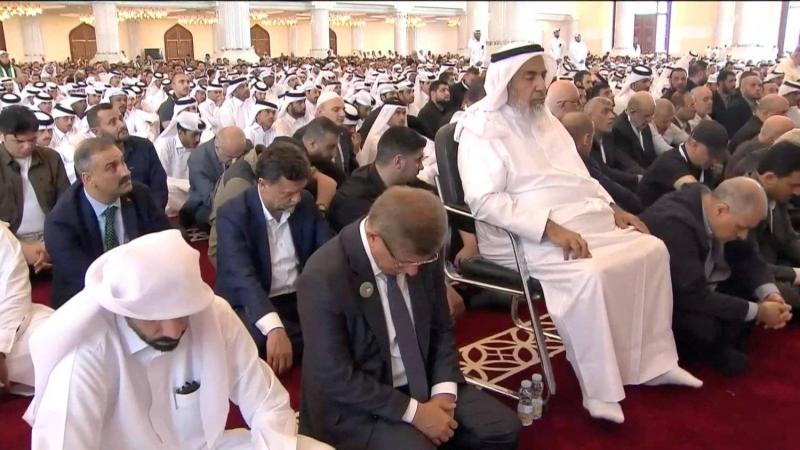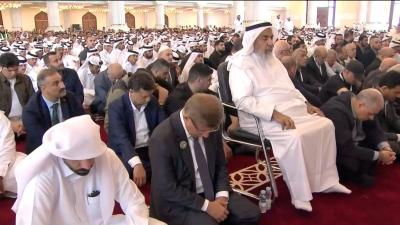An atmosphere of uncertainty prevails in the region following the assassination of Ismail Haniya, the head of Hamas's political bureau, in the heart of the ally while he was a guest in Tehran. The Iranian responses anticipated against Israel, as the presumed perpetrator of the assassination, remain to be seen. It is noteworthy that Israel has not officially claimed responsibility for the assassination to avoid justifications for an Iranian response, which would turn the response into an act of aggression from Iran.
On the other side, a political earthquake is shaking all Iranian militias because the location of Haniya's assassination is Tehran, a "source of decision-making that is no longer highly secret." Consequently, the issue of security breaches is worrisome, as Tehran's information vault appears compromised, which will affect the overall security content for these militias.
Given this equation, it may seem that the Iranian response will primarily serve to occupy the militias with the idea and substance of retaliation, rather than focusing on the security-related questions that plague the political mind in Tehran. Thus, the discourse around responding does not necessarily address the essence of the retaliation but rather aims to obscure the incident of the assassination itself. Regardless of the Iranian response, it will not resolve the Palestinian issue, which now enters a new labyrinth, limiting Iran's presence in the Palestinian scene in the upcoming phase.
The political transformations within Palestine after Haniya's assassination first concern Gaza. Discussions around the upcoming truce and Gaza's status the day after the war have changed significantly since the assassination. Netanyahu no longer thinks about the hostages; he has additional cards to play and is reshuffling them. This indicates a significant achievement for him before the Israeli public in terms of striking both Hamas and Hezbollah, following the assassination of the Hezbollah military leader just hours before Haniya.
Netanyahu's equation laid out in December 2023 when he stated that Hamas faces surrender or death has been reiterated by his Defense Minister Gallant immediately after Haniya's assassination. This means a return to square one in negotiations regarding Israel's long-term objectives and details, which, even if they result in the release of hostages, ultimately asserts that Israel has once again brought up the concept of a post-war Gaza devoid of Hamas.
Hamas faces another issue: continuing the war with significant losses among key military leaders and the danger of assassinations looming over political leaders abroad. This intensifies pressure on the Izz ad-Din al-Qassam Brigades in Gaza, which now bears the sole burden of decision-making. This implies they must abandon the concept of presence the day after the war, creating a costly reality for the movement, as it would mean losing its primary center of power and transforming into a purely political movement stripped of military power. This is also a difficult decision for the Izz ad-Din al-Qassam Brigades, which lacks a long-term horizon given the internal and external pressures.
The question of Gaza's future will inevitably be on the agenda in the forthcoming negotiation rounds. The second challenge Hamas faces abroad is not just security-related but also pertains to the political role of the movement, specifically in Lebanon. If an (official) war between Hezbollah and Israel is imminent, it suggests that there will be a political agreement at the end of this war, which will likely limit Hezbollah's presence in southern Lebanon, applying the same logic to Hamas. Hamas may find itself reduced to a political entity in Lebanon, consequently leaving its military strength primarily in the West Bank. This situation would shift automatically toward clandestine operations, as losing Gaza would create ambiguity around the future of Hamas and its political role in the Palestinian arena, along with the extent and implications of this role.
Can Hamas repair itself, and how and where? There is no longer a strong geography to rely upon to help rebuild the political and military structure of the movement.
Regarding the Palestinian Authority, if a stalemate is reached, and Hamas cannot maintain its position in Gaza without a political agreement with Israel post-war, what actions will the Palestinian Authority take in Gaza? This represents a significant challenge for the Authority, given the Israeli stance that refuses the complete return of the Authority to Gaza, which implies a rejection of uniting Gaza and the West Bank. This will undoubtedly affect the relationship between the Palestinian Authority and Hamas, as Hamas will need the Authority to keep it in the political scene. Consequently, what concessions will Hamas provide to the Palestinian Authority to retain its position? If the Palestine Liberation Organization is the forthcoming cover, this clearly signifies that Hamas is presented with choices concerning its continuation in the political landscape, necessitating a radical change in its approach. Therefore, the movement must drop the ideology, which is the most significant burden it carries; if it abandons this ideology, what direction will it take?
The assassination of Ismail Haniya, along with the assassination of prominent military leaders in Gaza, bears significant symbolism as it occurred during critical negotiations between Hamas and Israel on one hand and amidst attempts to restore the Palestinian scene on the other. This presents the movement with a dilemma of seeking a safe geography and an acceptable political program. It is worth remembering that Oslo did not arise directly after exiting Beirut but was produced by the peaceful stones intifada, which led to the starting point that fostered Oslo. The Palestinian geography was thus conducive to the political scene that brought about the Palestinian Authority. In Hamas's case, how can it construct a fresh starting point for the future?
The issue of the Iranian response and the Hezbollah war will ultimately converge into a single equation: a diminishing Iranian role and the role of Hezbollah in the forthcoming Palestinian scene.




